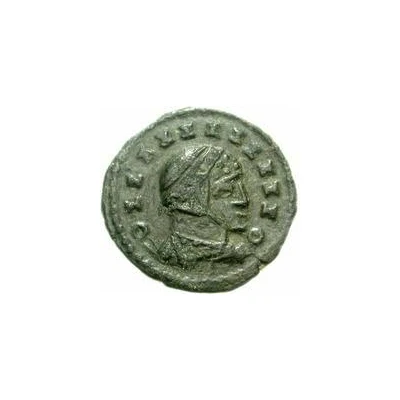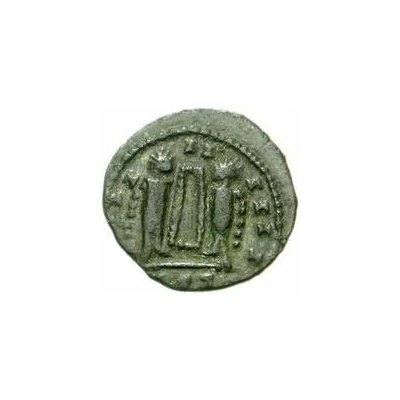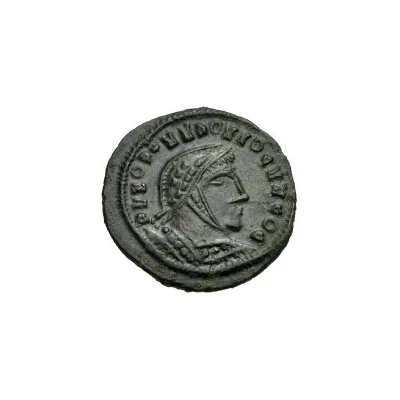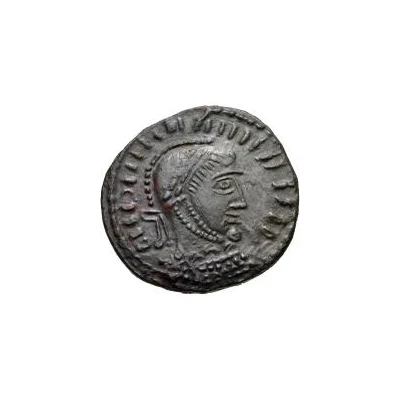
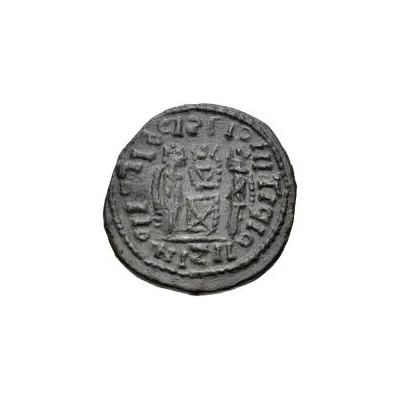

© Classical Numismatic Group, Inc.
Æ In the name of Constantine I; Bust facing right; podium with four sections
| Bronze | 3.41 g | 18 mm |
| Issuer | Uncertain Germanic tribes |
|---|---|
| Type | Standard circulation coin |
| Years | 325-425 |
| Currency | Solidus (circa 301-750) |
| Composition | Bronze |
| Weight | 3.41 g |
| Diameter | 18 mm |
| Shape | Round (irregular) |
| Technique | Hammered |
| Demonetized | Yes |
| Updated | 2024-10-04 |
| Numista | N#154163 |
|---|---|
| Rarity index | 95% |
Reverse
Two winged Victories facing each other with podium in-between, all surrounded by legend.
Script: Latin
Lettering:
OIIOLIOCPIIOIIITICIO
NIZII
Translation:
[Victoria Laetus Princeps Perpetui]
[The well-earned victories of the eternal Prince]
Edge
Plain
Comment
The podiums on these pieces sometimes appear to be hollow, solid, or something in-between, depending on the state of the die.Various weights have been recorded of this type from 2.30 grams to 3.41 grams; various diameters of this type have been recorded of this type from 17 millimetres to 18 millimetres.
This coin is said to be struck from the mid-4th to early-5th centuries. With the prototypes for these coins struck in Siscia mint or Treveri/Trier mint, and with those two types both being first struck in 318, 325 is the most-likely beginning date for this entire type of AE struck by an Uncertain Germanic Tribe.
The denominations of bronze coins that are unknown to numismatists are referred to as Æ (AE), followed by the coin's diameter. The Æ part simply means the coin is made of a base alloy, and because the diameter of these coins is never exactly as intended, different numbers can appear after the Æ for the same type.
The exact lettering of the surrounding legend may vary.
Interesting fact
One interesting fact about this coin is that it was minted during the reign of Constantine I, who was the first Christian Roman emperor and played a significant role in establishing Christianity as the dominant religion of the Roman Empire.
